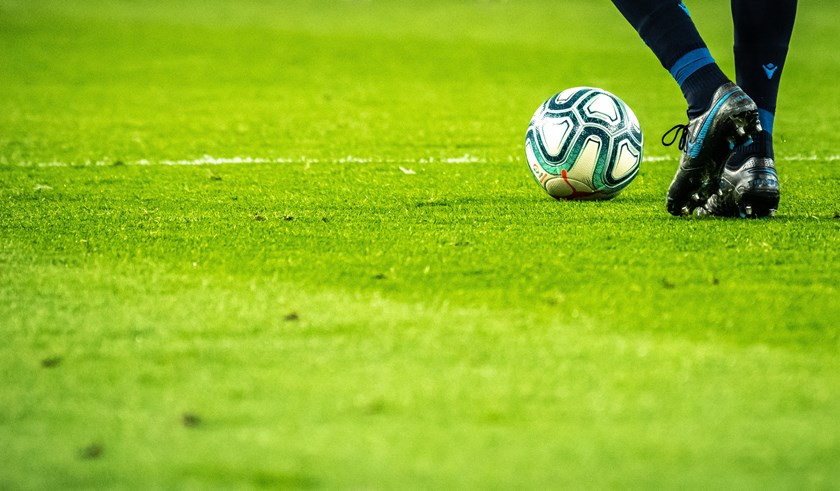Inn the Field of Play - February 2016: Real, Atletico and the next generation
News

This month we consider the recent press release dated 14 January 2016, in which FIFA announced that its Disciplinary Committee had sanctioned Atletico and Real Madrid "for breaches relating to the international transfer and registration of players under the age of 18". The sanctions included a transfer ban for the two clubs throughout the following two registration periods. In practice, this would prevent the registration of new players until July 2017. In addition, Atletico and Real were fined CHF 900,000 and CHF 360,000 respectively.
Following the announcement, much of the media discussion centred on the wider repercussions for the global transfer market. What did this mean for the futures of the likes of David De Gea, Cristiano Ronaldo and Gareth Bale, all of whom could be impacted in one way or another by the bans? Since the initial announcement, FIFA has confirmed that both clubs have lodged an appeal and the chairman of the FIFA Appeal Committee has agreed to suspend the bans until the appeal has been decided. As was well documented, the suspension of a similar transfer ban imposed on Barcelona (whilst the club appealed the relevant decision all the way to the Court of Arbitration for Sport) enabled them to sign six players in the following transfer window, including the now indispensable Luis Suarez and Ivan Rakitic. The appeal was ultimately unsuccessful and the ban on registering new players was effective during the two transfer windows in 2015. When the ban was lifted in January, Barcelona registered no fewer than 77 players.
Regulations relating to international transfers of young players
Whilst much of the mainstream media coverage inevitably concentrates on the consequences for elite level players, perhaps the more pressing issue concerns the young players who form the subject matter of the dispute. FIFA's original press release stated that Real and Atletico had breached Articles 5, 9, 19 and 19bis, together with Annexes 2 and 3 of the Regulations on the Status and Transfer of Players ("the Regulations"). Articles 5 and 9 focus on the obligations surrounding the registration of players generally but Articles 19 and 19bis are specifically concerned with the "Protection of minors".
Under Article 19(1), international player transfers involving amateur and professional players under the age of 18 are not permitted unless one of three conditions applies. These conditions are:
(i) the player's parents moving to the country of the new club for non-football reasons;
(ii) the transfer taking place within the EU or EEA and the player being aged 16 to 18 (subject to certain minimum obligations – see below); or
(iii) the player's home and the club each being within 50km of the same national border, with the player continuing to live at home and the two relevant football associations giving their consent.
In order to take advantage of condition (ii) clubs must meet certain obligations including the provision of football education and training, the provision of academic/school/vocational education and training in case the player stops playing professional football and making living arrangements for the player. Conditions (i) to (iii) also apply to any player who has never previously been registered with a club and "is not a national of the country in which he wishes to be registered for the first time" (Article 19(3)).
The conditions are apparently not exhaustive and, in a CAS case involving the Danish club Midtjylland, FIFA accepted that two additional exceptions (relating to students) could apply, including that transfers would be allowed where the player could establish that the reason for relocation was related to their studies and not football. Nonetheless, case law suggests that the conditions are likely to be strictly interpreted. The Paraguayan player Javier Acuna's transfer to Cadiz in Spain (when he was aged 16) was held invalid because his mother's employment contract with a local restaurant was signed after the filing of the paperwork for the transfer, meaning it failed to meet the requirements of condition (i) above.
"Football's great unreported scandal"
The Regulations are clearly designed to provide protection to young footballers embarking on a career in the sport. With the ever increasing commercialisation of football meaning that there is more and more at stake on the pitch, the search by clubs to unearth the next big thing continues to intensify. In a recent newspaper column, Harry Redknapp noted that (to his astonishment) he recently witnessed a scout from one of England's top clubs telling the parents of a two year old to contact him when their son reached the age of five.
The trafficking of young players, particularly from Africa, has been described by Oliver Brown of The Telegraph as "football's great unreported scandal". It is widely recognised that the source of the problem revolves around the activity of bogus agents who claim to be able to help players fulfil their dream of playing for Europe's clubs but then abandon them without any formal documentation or club contract. Players and their families are often left financially destitute after spending large sums on so-called agents' fees. Nonetheless, it is also incumbent on clubs to ensure that the young players they sign are not being exploited and are treated properly with due regard for their general welfare. Hence the requirements set out in FIFA's Regulations.
What next?
Questions naturally remain around whether the sanctions imposed are a sufficient deterrent to prevent clubs from apparently overlooking some of the Regulations in order to secure the best talent. The two registration period transfer ban imposed on Barcelona and initially imposed on the two Madrid clubs is a significant restriction in what is a very fluid market where clubs can get left behind if their squad does not evolve. Nonetheless, as noted above, the appeal process in the Barcelona case enabled them to strengthen their squad significantly in the interim period. And although it has been reported that Real and Atletico's appeal before the FIFA Appeal Committee will be heard before the summer transfer window, if they are unsuccessful then one can surely not rule out a further appeal to CAS and an additional suspension of the ban.
One could hardly blame the two clubs for frontloading their transfer policy during the summer if this is the case but this does not exactly seem to be a desirable consequence. In future, FIFA may wish to consider the imposition of longer transfer bans (the ban imposed on Barcelona was considered proportionate by CAS in light of the infringements that the club had committed) and/or adopting a policy whereby the lodging of an appeal does not have a suspensive effect on the transfer ban. Currently, FIFA's Disciplinary Code stipulates that an appeal "does not have a suspensive effect except with regard to orders to pay a sum of money" (Article 124) so it would appear that the suspension of the transfer bans is a matter of discretion.
Whilst the importance of deterring clubs from breaching the Regulations is undoubted, one positive consequence of a prolonged case may be further scrutiny of the wider issue surrounding young players. It seems inevitable that the exploitation referred to above will continue as money continues to flow into the game. With Spain's three leading clubs now having been embroiled in legal cases concerning their conduct in the transfer and registration of young players, those involved in the game must continue their efforts to raise awareness of player trafficking and work to eradicate it.
If you require further information on anything covered in this briefing please contact Thomas Rudkin ([email protected]; 020 3375 7586) or your usual contact at the firm on 020 3375 7000.
This publication is a general summary of the law. It should not replace legal advice tailored to your specific circumstances.
© Farrer & Co LLP, February 2016






